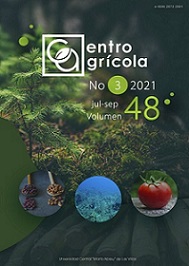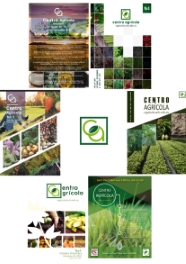CE: 1760 CF:cag04318
SCIENTIFIC ARTICLE
Agronomic response of cucumber to application of QuitoMax under organoponia conditions
Respuesta agronómica del pepino a la aplicación de QuitoMax en condiciones de organoponía
Luis Gustavo González Gómez1, María Caridad Jiménez Arteaga1, Dayana Castillo Cruz1, Irisneisy Paz Martínez1, Angel Yurlian Cambara Rodríguez1,Alejandro Falcón Rodríguez2
1Universidad de Granma, Carretera a Manzanillo km 17 Peralejo - Apartado 21 – Bayamo, Granma, Cuba, CP 85149, E-mail: This email address is being protected from spambots. You need JavaScript enabled to view it.
2 Instituto Nacional de Ciencias Agrícolas (INCA), Carretera de Tapaste km 3½. San José de Las Lajas, Mayabeque, Cuba, CP 32700
ABSTRACT
The work was carried out in the organic farm “Las Marianas”, municipality of Jiguaní county Granma, with the objective of evaluating the agronomic answer of the cultivation of the cucumber (Cucumis sativus L.) variety INIVIT to the application of QuitoMax. The treatments applied were T1: Control Treatment, T2: 200 mg ha-1, T3: 300 mg ha-1, T4: 350 mg ha-1 and T5: 400 mg ha-1, the distance of seeding between rows was 0,9 m and the distance between plants 0.22 m. The indicators number of fruits per plant, fruit mass (g), average length of fruits (cm), average diameter of fruits (cm), yield (kg m-²), and economic valuation were measured. A randomized block design with five treatments and three replications was used. Means were assessed by analysis of variance (simple classification) and Duncan test for a 5 % significance using the Estatistica package version 8. The best results in the evaluated variables were obtained with the T5 treatment: 400 mg ha-1 and from the economic point of view, it was more feasible to reach the highest agricultural yield with a value of 3.9 kg m-2 and a value of the production of 11.7 CUP m-2.






